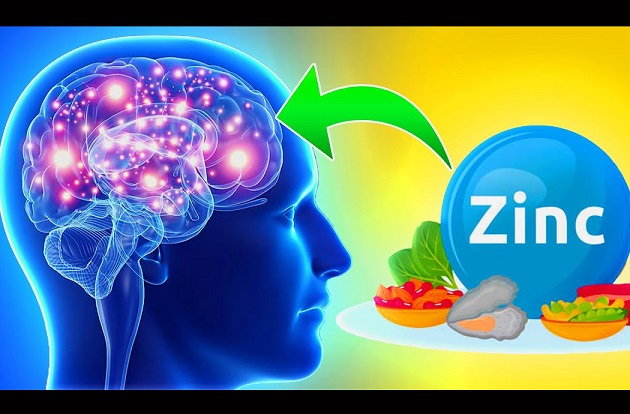Nikhil Prasad Fact checked by:Thailand Medical News Team Nov 10, 2025 2 months, 4 weeks, 1 day, 19 hours, 59 minutes ago
Medical News: Zinc’s Role in Brain and Mental Health
Researchers from the University of Cagliari, Niccolò Cusano University in Rome, the Health Agency of Cagliari, and Dalhousie University in Canada have uncovered growing evidence that disturbances in zinc balance in the human body may be linked to a variety of neuropsychiatric conditions. These include Alzheimer’s disease, Parkinson’s disease, autism spectrum disorder (ASD), attention deficit hyperactivity disorder (ADHD), schizophrenia, major depressive disorder (MDD), and bipolar disorder. Zinc is a trace element vital for brain function, immunity, and cell regulation, and even minor disruptions in its levels can have significant consequences for the nervous system. According to this
Medical News report, zinc acts as a cofactor for over 300 enzymes and supports neurotransmitter activity, immune response, and DNA repair—processes that are all essential for brain health and stability.
 Zinc Imbalance Linked to Rising Neuropsychiatric Disorders
Zinc Deficiency and Its Psychiatric Impact
Zinc Imbalance Linked to Rising Neuropsychiatric Disorders
Zinc Deficiency and Its Psychiatric Impact
The study notes that zinc deficiency or abnormal zinc transport in the body may lead to altered brain signaling and inflammation. This can contribute to psychiatric symptoms such as depression, hyperactivity, and cognitive decline. In ADHD, several studies observed lower zinc levels in children compared to healthy controls, with some showing that zinc supplements improved focus and reduced hyperactivity. In cases of autism, up to 92 percent of children tested had significantly lower zinc concentrations, often accompanied by an imbalance in copper levels. For Parkinson’s and Alzheimer’s diseases, disruptions in zinc homeostasis appear to worsen neurodegeneration, possibly due to oxidative stress and synaptic dysfunction.
Zinc and Depression
Among all conditions examined, the link between zinc and depression appears strongest. People with major depressive disorder consistently show lower zinc levels compared to healthy individuals. Clinical trials indicate that adding zinc supplements—typically 25 to 30 milligrams daily—can enhance the effects of antidepressant treatments, particularly in patients resistant to conventional medication. Interestingly, the benefits seem to stem from zinc’s ability to regulate neurotransmitters and reduce inflammation in the brain. Researchers caution, however, that excessive intake can cause nausea and interfere with copper absorption, emphasizing that supplementation must be carefully managed.
Other Disorders and the Broader Implications
The review also highlights emerging data connecting zinc fluctuations to bipolar disorder and schizophrenia, though the evidence remains inconclusive. In bipolar disorder, patients often display fluctuating zinc levels depending on their mood state. In Alzheimer’s, reduced zinc transporter activity in specific brain regions has been linked to worsening depression within dementia cases. These findings suggest zinc may not only influence brain chemistry but also affect emotional reg
ulation and cognition.
Why Zinc Balance Matters
The authors stress that maintaining proper zinc balance could be a promising way to reduce the burden of mental illness globally. While dietary sources like meat, seafood, and nuts can help, clinical testing for zinc levels may be warranted in at-risk populations such as children and the elderly. They call for more biomarker-based trials to determine which patients could benefit most from zinc supplementation. Proper dosing and monitoring are essential since too much zinc can be toxic, but at safe levels, it holds potential as a simple, affordable mental health aid.
The study findings were published in the peer reviewed International Journal of Molecular Sciences (IJMS).
https://www.mdpi.com/1422-0067/26/22/10877
For the latest on neuropsychiatric disorders, keep on logging to Thailand
Medical News.
Read Also:
https://www.thailandmedical.news/articles/mental-health
